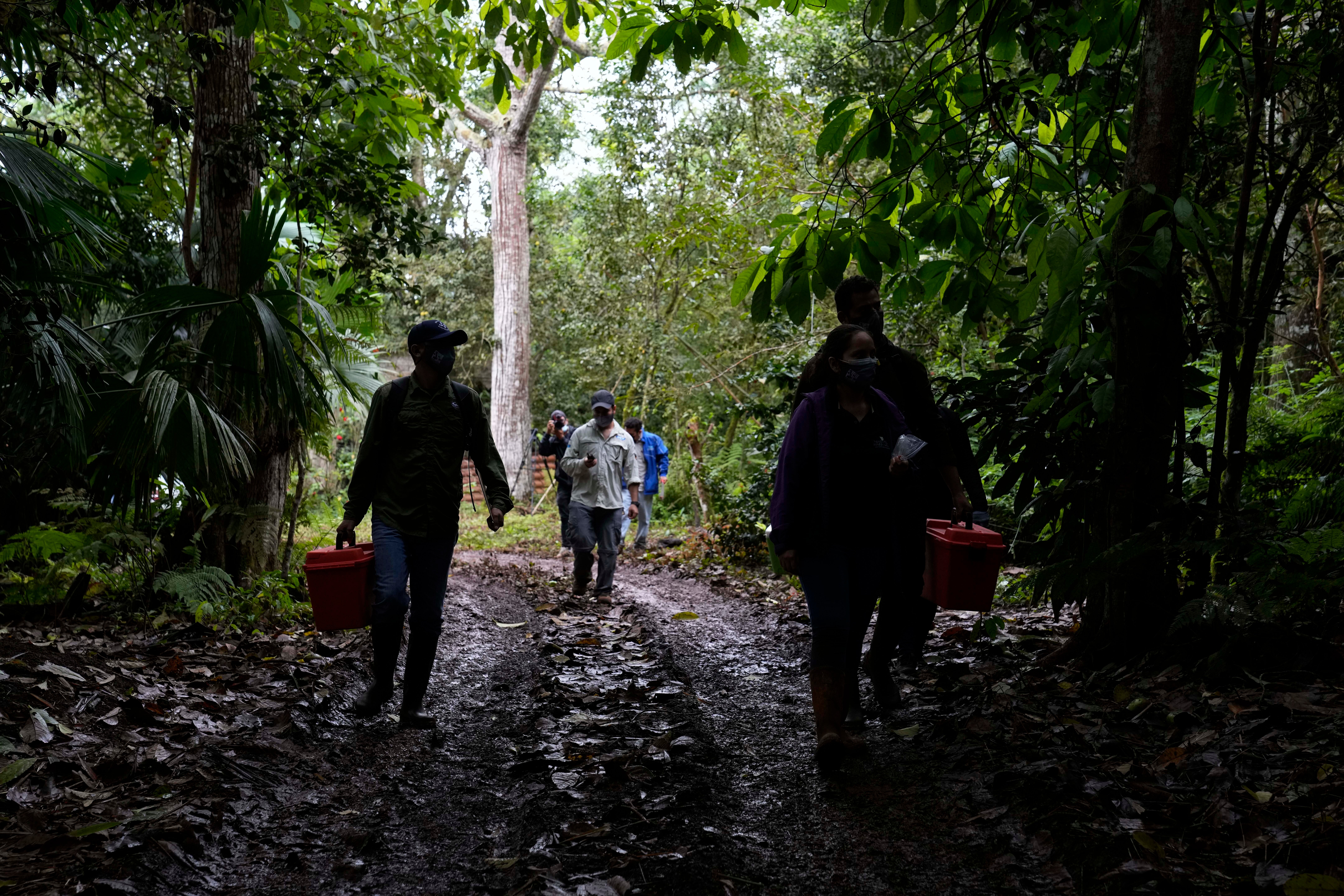Local citizen scientists map genetics of Darwin's Galapagos
An innovative project in the remote Galapagos islands has turned dozens of local inhabitants into citizen scientists at a moment when the pandemic has dried up tourist income

Five months into the pandemic, things were getting desperate for Robin Betancourt, The tourists he depended upon as a boat captain were unable to visit the Galapagos Islands, whose isolation — 1,000 kilometers (600 miles) from the mainland — makes alternative employment hard to find.
It hit him hard when when he couldn't find a few cents for his 5-year-old daughter Zulyn to buy a pastry.
Then science stepped in.
Betancourt was one of 74 Galapagos residents hired and trained to sample the genetic diversity in the small island chain that famously inspired Charles Darwin in his description of evolution.
“The project was a salvation, but also a challenge,” he said. “I only knew how to turn on the computer to play music; I didn't know how to operate the thing..”
“Now I'm part of a citizen science project. I'm a citizen scientist, look at that!" he said with a grin.
The Barcode Galapagos Project uses local people to gather, prepare and process tiny samples in DNA sequencing machines set up in three laboratories on the islands.
They search the soil and dip into the sea to collect samples left by the islands' plant and animal life, from large to microscopic.
The samples are run through the machines to determine short DNA sequences, producing barcode identifiers or fingerprints of thousands of species that can be compared with similar samples from elsewhere across the world.
“We are making a genetic catalog of the biodiversity of the Galapagos. We want to obtain the genetic signature of the species of the Galapagos and quantify the variation of each one due to the geographical isolation in which they are found.," said Diego Ortiz, manager of the project.
So far, the Charles Darwin Scientific Station has registered 10.659 species — some endemic and others introduced — ranging from mammals to bonefish to snakes, fungi and plants, plankton and bacteria.
They've sampled waters as deep as 30 meters (100 feet) as well as dirt from inland regions that holds bits of hair, skin or other biological remnants of animals that have passed by.
The researchers said about 30% to 40% of the species they've found so far don't match any others in a global bank of gene sequences.
The project involves researchers from Ecuadur's University of San Francisco; the University of Exeter in England the University of North Carolina at Chapel Hill and the Galapagos Science Center. Funding has come from U.K. Research and Innovation through the Global Challenges Research Fund and the Newton Fund.
UKRI said it's one of several projects meant to “mitigate the short- and long-term social, economic and health consequences” of the COVID-19 pandemic.
“This is the first science project in the Galapagos that has been done with Galapagos citizens, which we have always wanted to participate in, but hadn't been given the opportunity," said Jhosellyn Aguas, a 35-year-old naturalist and guide. "I'm happy to be doing science."
The project is scheduled to end, however, in November. By then, organizers hope to have a catalogue of information to help identify new species, fight illegal trafficking and control the entry of invasive species.
Bookmark popover
Removed from bookmarks